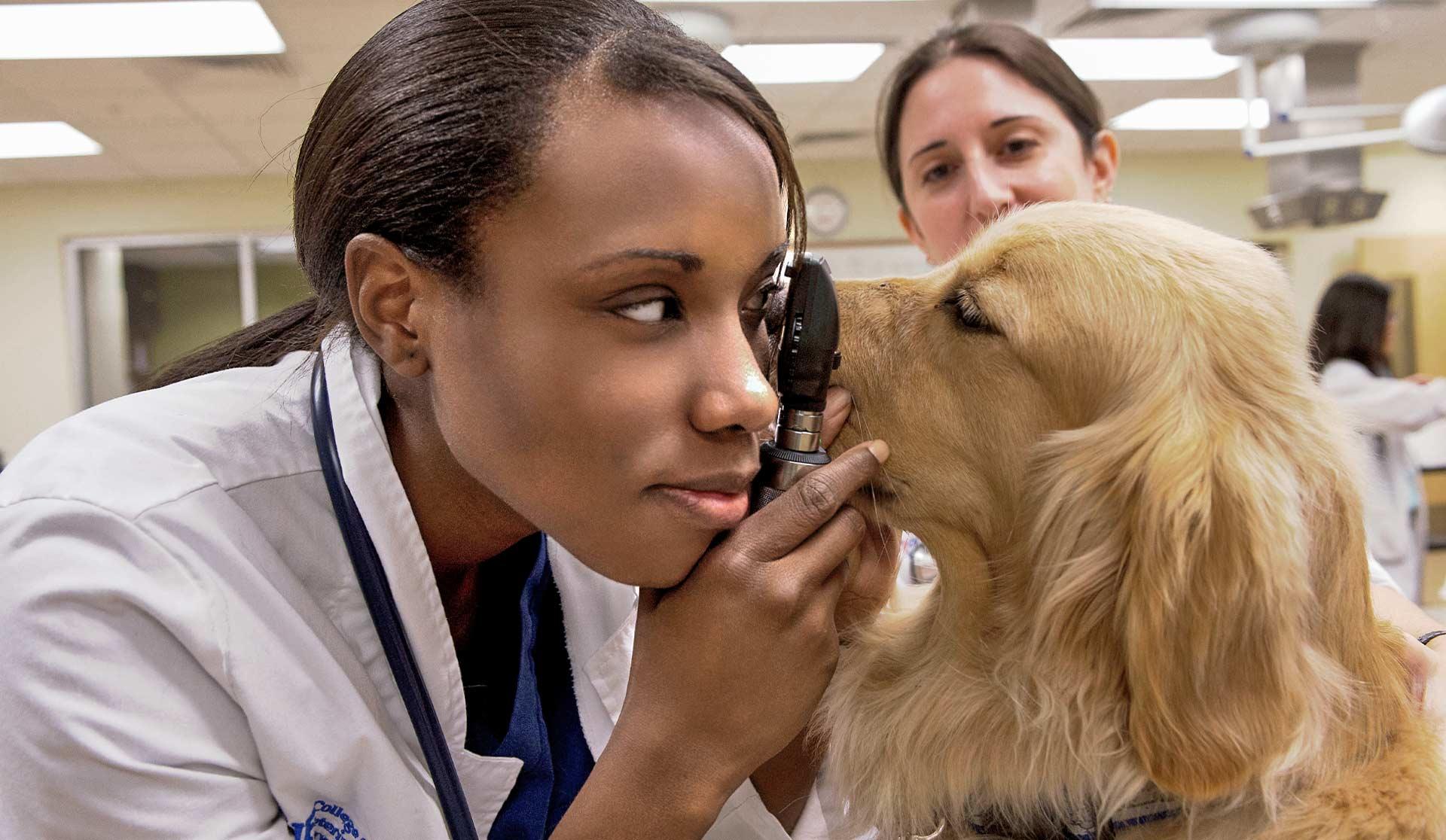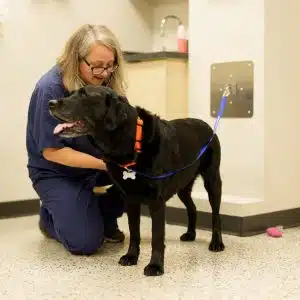The Importance of Very Early Discovery: Insights From a Veterinary Oncologist
Early detection of cancer in family pets is a crucial subject for family pet owners and veterinary professionals alike. Vet oncologists highlight the significance of recognizing refined indicators that may indicate significant wellness problems. Common symptoms frequently go undetected up until they rise. Comprehending these early warning indicators and improvements in analysis strategies can make a considerable distinction. What steps can pet owners take to enhance their pets' opportunities of early medical diagnosis and far better treatment end results?
Comprehending Cancer Cells in Animals: Common Kinds and Symptoms
While lots of animal proprietors may not understand it, cancer is a considerable health issue affecting pets, just like it performs in people. Usual types of cancer cells in animals consist of lymphoma, mast cell growths, osteosarcoma, and mammary tumors. These malignancies can show up in various methods, depending on their location and kind. Signs typically consist of inexplicable weight loss, consistent throwing up, adjustments in hunger, or uncommon swellings and bumps. Pets may also display sleepiness, trouble breathing, or reluctance to exercise, which can suggest underlying health concerns. Early indicators can be subtle, making it important for pet proprietors to be observant of their pet dogs' behaviors and physical condition. Recognizing these usual kinds and associated signs and symptoms can equip owners to look for vet treatment quickly, possibly bring about earlier medical diagnosis and therapy options. Identifying the indications of cancer in animals is a crucial step towards enhancing their health and wellness and lifestyle.
The Duty of Vet Oncologists in Early Detection
Vet oncologists play an important role in the early discovery of cancer cells in pets, as their specialized training equips them with the abilities essential to determine refined indications that might be ignored by general experts. They use a combination of medical know-how and progressed diagnostic tools to assess patients extensively - Veterinary Oncologist. By identifying very early signs and risk factors, oncologists can guide pet dog owners toward prompt interventions, increasing the opportunities of successful therapy
In addition, veterinary oncologists often team up with family doctors to create screening protocols customized to certain breeds or age teams, improving the performance of very early detection initiatives. They enlighten animal proprietors on the significance of regular examinations and understanding of adjustments in behavior or physical problem. Via these proactive steps, veterinary oncologists considerably add to improving outcomes for pets detected with cancer, highlighting the critical nature of their function in vet healthcare.
Developments in Diagnostic Techniques for Pet Dog Cancer Cells
Advancements in diagnostic strategies have actually significantly improved the capability to identify cancer in animals at earlier stages. Methods such as sophisticated imaging, including MRI and CT scans, give detailed internal sights, permitting vets to recognize lumps that might not be apparent. In addition, the growth of minimally intrusive treatments, such as great needle aspirates and biopsies, makes it possible for exact tasting of cells for histopathological analysis with lowered stress and anxiety for the pet.
Arising molecular diagnostics, consisting of genetic testing and biomarker identification, are changing the landscape of vet oncology. These techniques can identify particular cancer kinds and forecast actions to treatment, helping with customized care strategies. Innovations in lab techniques, such as fluid biopsies, are beginning to offer non-invasive alternatives for keeping an eye on lump development and treatment efficiency. Jointly, these innovations represent a considerable jump ahead in vet medication, stressing the essential function of very early detection in boosting results for animals detected with cancer.
Just How Animal Owners Can Identify Warning Indicators
How can family pet owners end up being watchful in acknowledging possible warning indications of cancer? Understanding of behavior and physical modifications in pet dogs is essential. Typical indications original site include uncommon sleepiness, loss of hunger, or sudden weight adjustments. Family pet owners must likewise focus on consistent you could try this out throwing up or diarrhea, which may indicate underlying issues.
Modifications in the skin, such as swellings, bumps, or sores that do not recover, warrant instant vet focus. Additionally, owners must keep in mind modifications in drinking behaviors, increased urination, or difficulty in breathing. Inexplicable hopping or discomfort may also be indications of more significant problems.
Normal vet check-ups can aid identify these indication early. By preserving a close monitoring of their family pets' health and wellness and actions, proprietors can play an essential function in early discovery, possibly bring about better outcomes should cancer cells be diagnosed. Recognizing these signs may significantly affect an animal's top quality of life.
The Effect of Very Early Discovery on Therapy Outcomes
Early discovery of cancer cells in family pets plays an essential duty in identifying treatment outcomes, as it often permits a bigger series of restorative choices. When cancer is detected in its onset, veterinarians can execute much less intrusive treatments, increasing the chance of effective intervention. Early-stage cancers might likewise respond better to radiation treatment or radiation, bring about enhanced survival rates and total high quality of life for the family pet.
Additionally, punctual diagnosis facilitates an extra customized treatment strategy, lining up with the specific demands of the animal. This can include customized drug programs or surgical treatments that are less aggressive. Alternatively, late-stage discovery typically causes limited choices, a lot more aggressive treatments, and poorer diagnoses. The importance of early discovery can not be overstated; it essentially modifies the trajectory of treatment, making it important for animal proprietors to continue to be watchful for any type of indicators of illness in their cherished friends.
Frequently Asked Questions

How Can Diet Regimen Influence Cancer Cells Threat in Animals?
Diet significantly influences cancer cells threat in family pets, as certain nutrients and food kinds can either promote or prevent lump growth. A well balanced, nutrient-rich diet may help in reducing the chance of establishing cancer cells in animals.
Are Specific Types A Lot More Prone to Cancer cells?
Specific pet breeds, such as Golden Retrievers and Fighters, display higher cancer sensitivity due to genetic proneness. In a similar way, some feline breeds additionally reveal enhanced cancer cells threats, highlighting the relevance of breed-specific health and wellness recognition among animal proprietors.
What Are the Costs Related To Early Cancer Cells Detection?
The prices related to early cancer discovery can vary substantially, including diagnostic tests, appointments, and prospective therapies - Veterinary Oncology Services. Purchasing these services frequently leads to better health end results, inevitably saving on a lot more extensive future medical expenditures
Can Vaccines Stop Cancer Cells in Pets?


Injections might decrease the risk of particular cancers in family pets, specifically those linked to viral infections. Nonetheless, their effectiveness differs, and pet proprietors should seek advice from vets for tailored recommendations regarding vaccination and cancer cells avoidance techniques.
Exactly How Commonly Should Pet Dogs Be Screened for Cancer?
Family pets need to generally be screened for cancer yearly, specifically as they mature or if they show risk elements. Routine veterinary exams can aid recognize potential problems early, boosting therapy end results and general health administration.
Early detection of cancer in pet dogs is a necessary subject for animal owners and vet specialists alike. Early indicators can be refined, making it article vital for pet dog proprietors to be observant of their family pets' habits and physical condition. Vet oncologists play a vital role in the early detection of cancer cells in family pets, as their specialized training outfits them with the skills essential to identify subtle indications that may be overlooked by general experts. By preserving a close monitoring of their pets' wellness and actions, proprietors can play an essential role in early discovery, potentially leading to much better results should cancer cells be identified. Early discovery of cancer cells in animals plays a necessary role in figuring out therapy results, as it often enables for a broader array of restorative options.